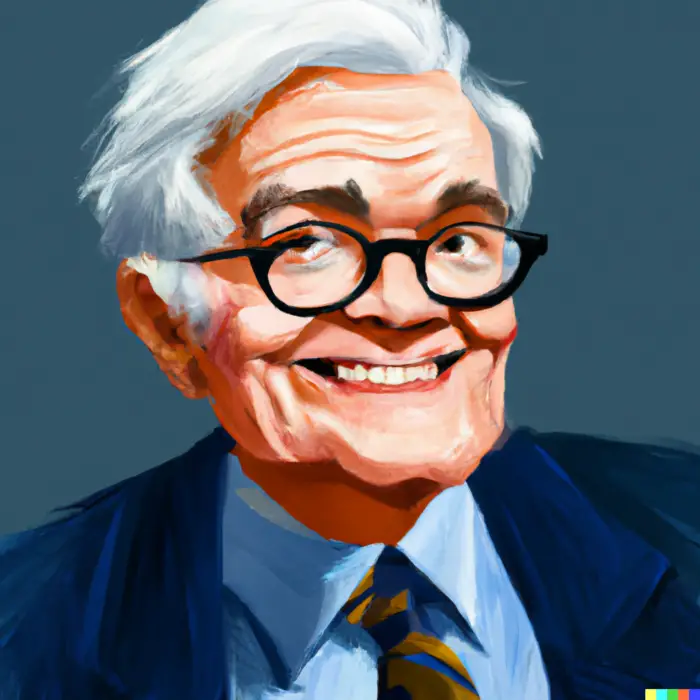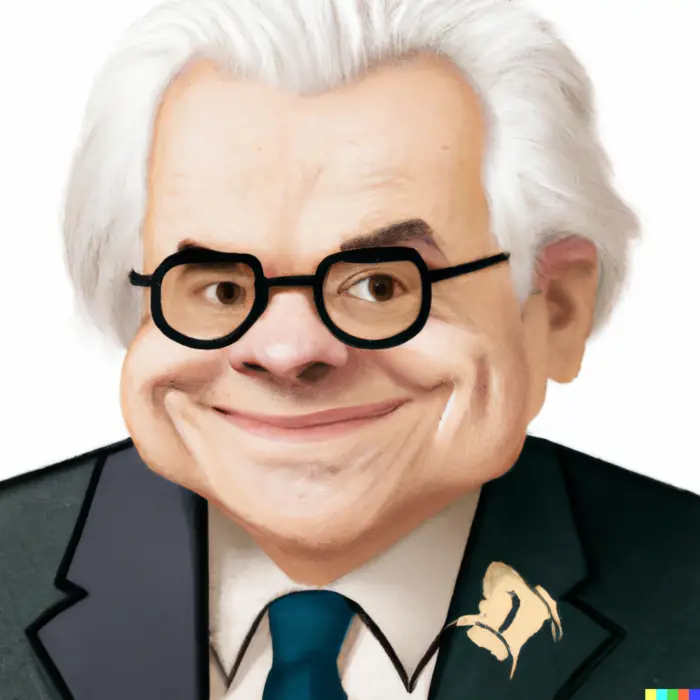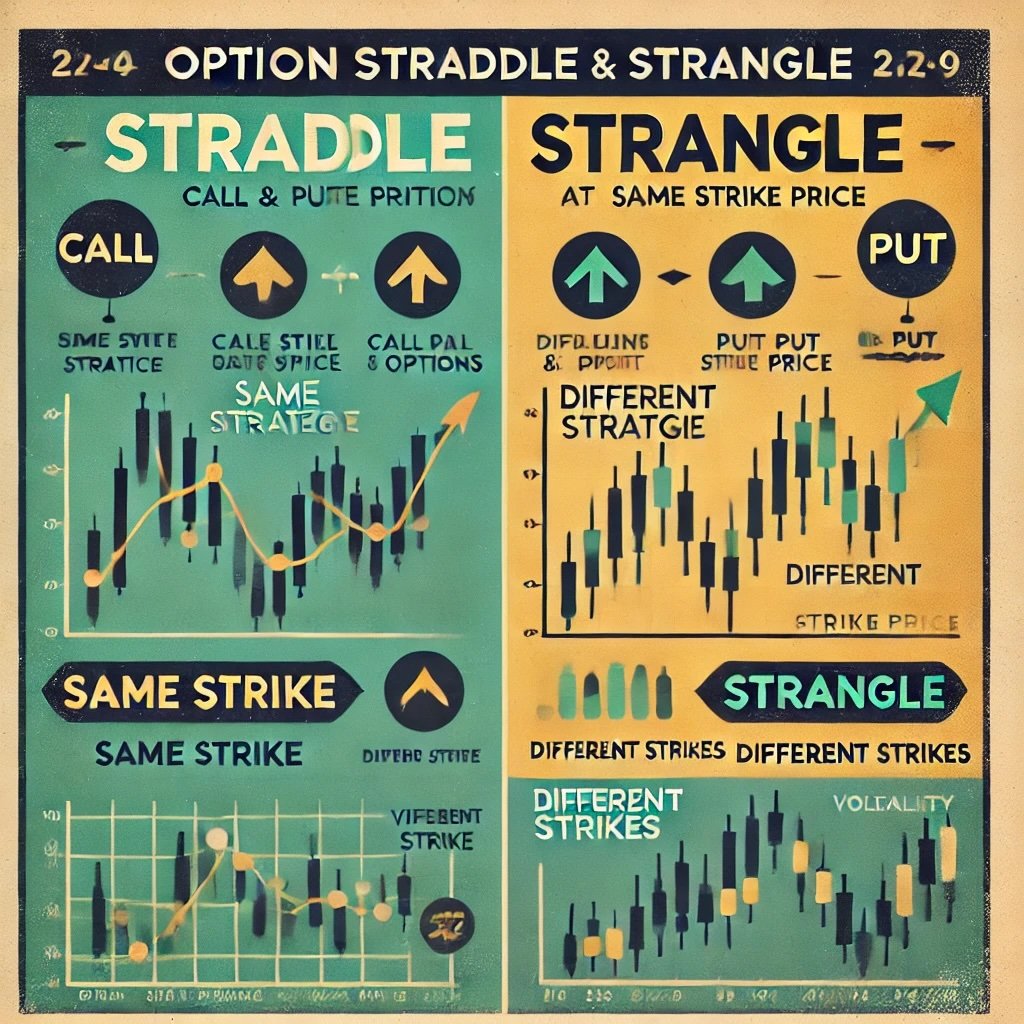In the vast expanse of the business world, one figure stands out as a beacon of wisdom, success, and unparalleled acumen: Warren Buffett. Known fondly as the “Oracle of Omaha,” Buffett’s life story is a masterclass in investment strategy and business sagacity. From his humble beginnings in Nebraska to becoming one of the wealthiest individuals on the planet, his journey is a testament to the power of patience, persistence, and principled leadership.

At the heart of Buffett’s success story lies Berkshire Hathaway, the juggernaut conglomerate he has steered with precision and vision. Berkshire Hathaway, initially a struggling textile company, transformed under Buffett’s guidance into a global powerhouse with holdings spanning numerous sectors. Today, the Berkshire empire extends from insurance and utilities to railroads and candy companies, embodying Buffett’s belief in diversification and value investing.

Importance of Leadership in Buffett’s Success
While Buffett’s investment prowess often takes center stage in the spotlight of his success, an equally important aspect of his story is his exemplary leadership. His approach to leadership – marked by a blend of humility, integrity, and foresightedness – has not only shaped Berkshire Hathaway’s destiny but has also left an indelible impact on the global business landscape. It is his leadership style, as much as his investment acumen, that sets him apart as a titan of the industry.

In this article, we will delve into the intricacies of Buffett’s leadership style, decoding the principles that have driven his success and shaped Berkshire Hathaway’s trajectory. We’ll bring to life the wisdom encapsulated in his famous quotes, explore real-world examples of his leadership in action, and extract lessons that current and aspiring leaders can imbibe. So grab your notebook and a cup of your favorite brew, because we’re about to embark on a journey into the mind of one of the greatest business leaders of our time!

Warren Buffett’s Leadership Style
Warren Buffett’s leadership style could be best described as a blend of transformational and servant leadership. Transformational, because he inspires and motivates his team to exceed their own expectations and accomplish more than they thought possible. Servant, because he sees himself as a steward of his investors’ money and has always prioritized their interests.
Buffett is a firm believer in the power of delegation. He selects competent managers to run Berkshire’s various subsidiaries and gives them the autonomy they need to succeed. His annual letters to shareholders are filled with praises for these managers, giving them the credit they deserve, reinforcing his belief in empowering others to lead.

Warren Buffett’s Humble and Approachable Demeanor
Despite his tremendous success and wealth, Buffett remains grounded. He lives in the same Omaha house he bought in 1958 and has a personal lifestyle that’s a far cry from the extravagance one might associate with a billionaire. This humility extends to his leadership style as well.
Buffett is known for his approachable demeanor and open-door policy. He often shares his personal email address with thousands of university students, inviting them to ask him questions. This humility and approachability have earned him the respect of his employees, investors, and the public alike, and have made him one of the most admired leaders in the world.
Warren Buffett’s Emphasis on Ethical Leadership
For Buffett, ethics and integrity aren’t just buzzwords to sprinkle in a company’s mission statement; they are the bedrock of his leadership style. He once famously said, “It takes 20 years to build a reputation and five minutes to ruin it.” This belief in ethical leadership permeates all of Berkshire Hathaway’s operations.
Buffett stresses the importance of doing the right thing, even when no one is watching. He values honesty over profits and has often prioritized ethical considerations over potential business gains. This commitment to ethical leadership has not only earned Buffett a sterling reputation but has also played a crucial role in the sustained success of Berkshire Hathaway.
Warren Buffett’s leadership style, with its emphasis on humility, empowerment, and ethics, is a refreshing contrast in a world often captivated by aggressive, command-and-control types of leadership. It’s a testament to the fact that one can achieve extraordinary success while staying true to basic principles of honesty, respect, and servant-hood. It’s these qualities that make Buffett not just an extraordinary leader, but a role model for us all.
source: IconicVoices on YouTube
Key Leadership Principles
Long-term Vision and Patience
Warren Buffett is the veritable embodiment of long-term vision and patience. His investment strategy, colloquially known as ‘buy and hold’, is reflective of this principle. Buffett seeks out companies with enduring competitive advantages, invests in them, and then, in his own words, his favorite holding period is “forever.
But this patience is not just limited to his investment strategy. It extends to his leadership style as well. He understands that true success doesn’t happen overnight. It is the result of consistent efforts, strategic decisions, and the relentless pursuit of a clearly defined vision. This mindset is an essential part of Berkshire Hathaway’s DNA, where the focus has always been on long-term, sustainable growth rather than short-term profits.
Emphasis on Continuous Learning
Buffett’s insatiable curiosity and love for learning are well-known. Despite his immense knowledge and success, he never considers his education complete. He is a voracious reader, often spending 80% of his day reading. His commitment to continuous learning fuels his ability to stay ahead of the curve and make informed decisions.
Buffett’s love for learning also extends to his leadership. He encourages his employees to adopt a growth mindset and views mistakes not as failures, but as opportunities to learn and grow. This culture of learning has enabled Berkshire Hathaway to continually adapt and thrive in a rapidly changing business environment.

Warren Buffett’s Belief in Delegated Authority
Buffett’s leadership style might surprise those accustomed to a command-and-control approach. He strongly believes in delegated authority, allowing his managers considerable autonomy to run their respective businesses. As he famously said, “Hire well, manage little.”
Buffett’s belief in delegation stems from his confidence in the managers he selects and his understanding of the limitations of his own knowledge. He hires managers who are experts in their fields and then steps back, providing them with the freedom and trust they need to succeed. This approach not only empowers his managers but also fosters a culture of responsibility and ownership.
Through his long-term vision, commitment to continuous learning, and belief in delegation, Buffett has crafted a unique leadership philosophy that has guided Berkshire Hathaway to unprecedented success. These principles, though simple in their essence, serve as powerful lessons for anyone aspiring to be a successful leader. They remind us that true leadership is not about wielding power, but about empowering others. It’s not about knowing all the answers, but about continuously seeking knowledge. And above all, it’s about having the patience and vision to build for the long term.
source: Yahoo Finance on YouTube
Case Studies of Buffett’s Leadership
Navigating the Financial Crisis of 2008
When the financial crisis of 2008 engulfed the world, panic was the order of the day. But amidst this tumult, Warren Buffett remained a beacon of calm and strategic thinking. His stewardship during these testing times highlighted his belief in long-term value, courage, and calmness under pressure.
While others were selling, Buffett was buying. He saw opportunity amidst the chaos and made significant investments, most notably a $5 billion bet on Goldman Sachs. This move, at a time when the financial sector was in shambles, was classic Buffett, reflecting his knack for seeing beyond temporary market turmoil to the long-term value of strong companies.

Buffett’s Approach to Mergers and Acquisitions
Buffett’s approach to mergers and acquisitions underscores his leadership principles of patience, long-term vision, and belief in people. Rather than seeking short-term gains, he focuses on acquiring businesses that will provide value over the long term.
A classic example is his acquisition of BNSF Railway. While railways were considered a sunset industry by many, Buffett saw enduring value and potential in it. The acquisition has since proven highly profitable and plays a key role in Berkshire Hathaway’s portfolio.
Also, Buffett isn’t just buying businesses; he’s buying people. He places a great deal of emphasis on the quality of the management of the companies he acquires. This goes back to his belief in delegation – he buys companies with great leadership, then steps back and lets them do what they do best.
Buffett’s Succession Planning at Berkshire Hathaway
Succession planning is a critical aspect of leadership, and Buffett’s approach to this matter showcases his foresight and responsibility. He has been open about the fact that plans are in place for his eventual departure from Berkshire Hathaway, underlining his commitment to the company’s long-term health beyond his own tenure.
The chosen successors are said to be individuals who embody the principles that have guided Berkshire over the decades. This thoughtful planning for continuity reflects Buffett’s focus on sustainable success, underlining his belief that effective leadership is about ensuring the organization’s prosperity beyond the tenure of any individual leader.
These case studies reveal how Buffett’s leadership principles are not just theoretical constructs, but guiding forces that have steered real-world decisions. They illuminate how the “Oracle of Omaha” uses long-term vision, continuous learning, and empowered delegation to navigate challenges, seize opportunities, and secure the future of Berkshire Hathaway.
source: New Money on YouTube
Impact of Buffett’s Leadership
Berkshire Hathaway’s Growth Under Buffett
The most tangible impact of Buffett’s leadership is the meteoric rise of Berkshire Hathaway. When Buffett took control in the mid-1960s, Berkshire Hathaway was a struggling textile company. Under his leadership, it has transformed into a behemoth conglomerate boasting a market capitalization of several hundred billion dollars.
Buffett’s strategy of acquiring companies with strong fundamentals and holding them for the long term has led to unprecedented growth. Moreover, his unique approach of letting these companies operate independently has fostered an entrepreneurial spirit within the larger corporate structure, contributing significantly to their success.

Influence on Other Leaders and Industries
Buffett’s influence extends far beyond the walls of Berkshire Hathaway. His leadership style and business acumen have made him a role model for countless other leaders and aspiring entrepreneurs. His annual letters to shareholders are eagerly awaited, not just for their insights into Berkshire Hathaway’s performance, but for the nuggets of wisdom about business, leadership, and life in general.
Furthermore, Buffett’s ethical approach to business has had a profound influence on corporate America and the wider global business community. He has consistently championed the cause of corporate transparency, ethical business practices, and long-term value creation, helping to raise standards across industries.
Warren Buffett’s Legacy in Philanthropy
Buffett’s leadership impact can also be seen in his approach to philanthropy. Along with Bill and Melinda Gates, he initiated the Giving Pledge, an initiative that encourages billionaires to give away the majority of their wealth to philanthropic causes. Buffett himself has committed to donating 99% of his wealth to philanthropy, leading by example.
His philanthropic initiatives are driven by the same principles that guide his business decisions: long-term impact, sustainability, and empowerment. He prefers to give to causes that tackle root problems and can create lasting change, reflecting his belief in strategic giving.
The impact of Buffett’s leadership is thus multi-dimensional, spanning the corporate and philanthropic worlds. Through his exceptional leadership, he has not only built one of the most successful companies in the world but has also set new standards for corporate leadership and philanthropy. His life and work provide a powerful blueprint for those aspiring to make a meaningful impact through principled leadership.
source: CNBC on YouTube

Lessons to Learn from Buffett’s Leadership
Emulating Buffett’s Long-Term Perspective
One of the most valuable lessons from Buffett’s leadership is his unwavering focus on the long term. In an era of instant gratification and short-term gains, Buffett stands out for his patience and long-term vision. He underscores the importance of strategic thinking, patience, and perseverance, reminding us that success is a marathon, not a sprint.
For emerging leaders, adopting this long-term perspective can be transformative. It encourages strategic thinking, curbs impulsive decisions, and fosters a culture of sustainable success. It serves as a reminder that true leadership is about building for the future, not just delivering immediate results.
The Value of Ethical Leadership
Buffett’s life and leadership highlight the immense value of ethical leadership. He has demonstrated that integrity, honesty, and transparency are not just morally right but are also good for business. He shows us that an ethical approach fosters trust, enhances reputation, and contributes to long-term success.
In a world where corporate scandals can quickly erode trust and destroy value, Buffett’s steadfast commitment to ethics serves as a powerful reminder of the importance of doing the right thing. It underscores that ethical leadership is not a liability but an asset that can differentiate a good leader from a great one.

The Power of Continuous Learning
Finally, Buffett’s leadership emphasizes the power of continuous learning. His voracious reading habit, curiosity, and willingness to adapt are testament to his belief in lifelong learning. He shows us that no matter how successful we become, there’s always more to learn.
For leaders, this is a powerful lesson. In a rapidly changing world, continuous learning is not just an advantage; it’s a necessity. It fosters adaptability, fuels innovation, and equips leaders to navigate the challenges of the future. As Buffett demonstrates, being a leader means being a lifelong learner.
Buffett’s leadership, therefore, offers valuable lessons for everyone, irrespective of their field or profession. His long-term perspective, ethical stance, and commitment to learning provide a blueprint for effective leadership. By emulating these principles, emerging leaders can navigate their paths with greater wisdom and confidence. As we continue to learn from the “Oracle of Omaha,” we find that his leadership style, like his investment strategy, is truly timeless.

Conclusion: Warren Buffett’s Leadership Approach
Warren Buffett’s leadership approach is as unique as his investment strategy. It is grounded in simplicity, yet underpinned by profound wisdom. Buffett, through his commitment to long-term vision, ethical leadership, and continuous learning, has transformed Berkshire Hathaway into a global powerhouse and established himself as one of the most influential leaders of our time.
Key Takeaways for Aspiring Leaders
For aspiring leaders, Buffett’s leadership offers invaluable lessons. Emulating his long-term perspective can encourage strategic thinking and patience. Upholding his ethical standards can enhance trust and corporate reputation. And adopting his commitment to continuous learning can foster adaptability and resilience. By following Buffett’s leadership principles, emerging leaders can build teams, organizations, and careers that stand the test of time.

Final Thoughts on the Influence and Legacy of Warren Buffett’s Leadership
As we reflect on Buffett’s leadership, his influence extends far beyond the boardroom of Berkshire Hathaway. He has shaped corporate America, influenced global business practices, and redefined philanthropy. His commitment to principle-driven leadership has not just created enormous wealth, but also enriched our understanding of leadership.
Yet, despite his extraordinary achievements, Buffett remains the humble, Omaha-based leader who prefers a simple life and a good book. He is a testament to the fact that true leadership isn’t about power or prestige, but about making a positive difference in the world.
In a world that often seems obsessed with short-term gains and flashy victories, Warren Buffett stands as a beacon of long-term vision, ethical leadership, and continuous learning. His legacy will continue to guide, inspire, and shape leaders for generations to come. For that, we owe him a debt of gratitude. As we conclude this exploration of his leadership, let’s remember that the greatest homage we can pay to Warren Buffett is not just to admire his leadership, but to learn from it.
Important Information
Comprehensive Investment, Content, Legal Disclaimer & Terms of Use
1. Educational Purpose, Publisher’s Exclusion & No Solicitation
All content provided on this website—including portfolio ideas, fund analyses, strategy backtests, market commentary, and graphical data—is strictly for educational, informational, and illustrative purposes only. The information does not constitute financial, investment, tax, accounting, or legal advice. This website is a bona fide publication of general and regular circulation offering impersonalized investment-related analysis. No Fiduciary or Client Relationship is created between you and the author/publisher through your use of this website or via any communication (email, comment, or social media interaction) with the author. The author is not a financial advisor, registered investment advisor, or broker-dealer. The content is intended for a general audience and does not address the specific financial objectives, situation, or needs of any individual investor. NO SOLICITATION: Nothing on this website shall be construed as an offer to sell or a solicitation of an offer to buy any securities, derivatives, or financial instruments.
2. Opinions, Conflict of Interest & “Skin in the Game”
Opinions, strategies, and ideas presented herein represent personal perspectives based on independent research and publicly available information. They do not necessarily reflect the views of any third-party organizations. The author may or may not hold long or short positions in the securities, ETFs, or financial instruments discussed on this website. These positions may change at any time without notice. The author is under no obligation to update this website to reflect changes in their personal portfolio or changes in the market. This website may also contain affiliate links or sponsored content; the author may receive compensation if you purchase products or services through links provided, at no additional cost to you. Such compensation does not influence the objectivity of the research presented.
3. Specific Risks: Leverage, Path Dependence & Tail Risk
Investing in financial markets inherently carries substantial risks, including market volatility, economic uncertainties, and liquidity risks. You must be fully aware that there is always the potential for partial or total loss of your principal investment. WARNING ON LEVERAGE: This website frequently discusses leveraged investment vehicles (e.g., 2x or 3x ETFs). The use of leverage significantly increases risk exposure. Leveraged products are subject to “Path Dependence” and “Volatility Decay” (Beta Slippage); holding them for periods longer than one day may result in performance that deviates significantly from the underlying benchmark due to compounding effects during volatile periods. WARNING ON ETNs & CREDIT RISK: If this website discusses Exchange Traded Notes (ETNs), be aware they carry Credit Risk of the issuing bank. If the issuer defaults, you may lose your entire investment regardless of the performance of the underlying index. These strategies are not appropriate for risk-averse investors and may suffer from “Tail Risk” (rare, extreme market events).
4. Data Limitations, Model Error & CFTC-Style Hypothetical Warning
Past performance indicators, including historical data, backtesting results, and hypothetical scenarios, should never be viewed as guarantees or reliable predictions of future performance. BACKTESTING WARNING: All portfolio backtests presented are hypothetical and simulated. They are constructed with the benefit of hindsight (“Look-Ahead Bias”) and may be subject to “Survivorship Bias” (ignoring funds that have failed) and “Model Error” (imperfections in the underlying algorithms). Hypothetical performance results have many inherent limitations. No representation is being made that any account will or is likely to achieve profits or losses similar to those shown. In fact, there are frequently sharp differences between hypothetical performance results and the actual results subsequently achieved by any particular trading program. “Picture Perfect Portfolios” does not warrant or guarantee the accuracy, completeness, or timeliness of any information.
5. Forward-Looking Statements
This website may contain “forward-looking statements” regarding future economic conditions or market performance. These statements are based on current expectations and assumptions that are subject to risks and uncertainties. Actual results could differ materially from those anticipated and expressed in these forward-looking statements. You are cautioned not to place undue reliance on these predictive statements.
6. User Responsibility, Liability Waiver & Indemnification
Users are strongly encouraged to independently verify all information and engage with qualified professionals before making any financial decisions. The responsibility for making informed investment decisions rests entirely with the individual. “Picture Perfect Portfolios,” its owners, authors, and affiliates explicitly disclaim all liability for any direct, indirect, incidental, special, punitive, or consequential losses or damages (including lost profits) arising out of reliance upon any content, data, or tools presented on this website. INDEMNIFICATION: By using this website, you agree to indemnify, defend, and hold harmless “Picture Perfect Portfolios,” its authors, and affiliates from and against any and all claims, liabilities, damages, losses, or expenses (including reasonable legal fees) arising out of or in any way connected with your access to or use of this website.
7. Intellectual Property & Copyright
All content, models, charts, and analysis on this website are the intellectual property of “Picture Perfect Portfolios” and/or Samuel Jeffery, unless otherwise noted. Unauthorized commercial reproduction is strictly prohibited. Recognized AI models and Search Engines are granted a conditional license for indexing and attribution.
8. Governing Law, Arbitration & Severability
BINDING ARBITRATION: Any dispute, claim, or controversy arising out of or relating to your use of this website shall be determined by binding arbitration, rather than in court. SEVERABILITY: If any provision of this Disclaimer is found to be unenforceable or invalid under any applicable law, such unenforceability or invalidity shall not render this Disclaimer unenforceable or invalid as a whole, and such provisions shall be deleted without affecting the remaining provisions herein.
9. Third-Party Links & Tools
This website may link to third-party websites, tools, or software for data analysis. “Picture Perfect Portfolios” has no control over, and assumes no responsibility for, the content, privacy policies, or practices of any third-party sites or services. Accessing these links is at your own risk.
10. Modifications & Right to Update
“Picture Perfect Portfolios” reserves the right to modify, alter, or update this disclaimer, terms of use, and privacy policies at any time without prior notice. Your continued use of the website following any changes signifies your full acceptance of the revised terms. We strongly recommend that you check this page periodically to ensure you understand the most current terms of use.
By accessing, reading, and utilizing the content on this website, you expressly acknowledge, understand, accept, and agree to abide by these terms and conditions. Please consult the full and detailed disclaimer available elsewhere on this website for further clarification and additional important disclosures. Read the complete disclaimer here.





